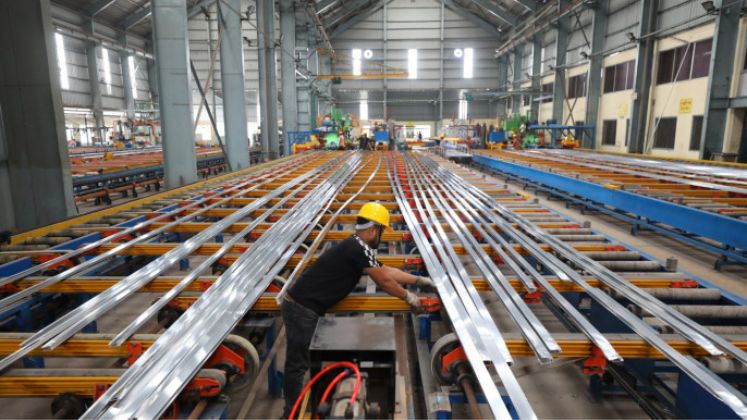
The current fiscal year has seen a sharp drop in the import of capital machinery, raw materials, and intermediate goods, which has harmed the nation’s industrial production and employment levels.
According to data provided by the Bangladesh Bureau of Statistics (BBS) on Monday, the increase in manufacturing output has significantly slowed down. Estimates for FY24 indicate that this growth would only reach 6.66 per cent.
This is a significant decrease from the 8.37 per cent growth reported the previous year and a steep drop from the 9.86 per cent and 10.29 per cent growth rates seen in the two fiscal years prior.
Based on figures from the Bangladesh Bank, total imports decreased by 15.5 per cent to US $ 49.22 billion during the July–March quarter of the current fiscal year, from US $ 58.27 billion during the same period last year.
The import of other intermediate goods decreased by 20.2 per cent. Clinker imports were worth US $ 715 million in the first nine months of this fiscal year, compared to the previous year’s US $ 927 million.
During the first nine months of FY ’24, imports of clothing-related goods—the nation’s primary export—dropped by 9.1 per cent on an annual basis. According to a breakdown, imports of raw cotton fell from US $ 3.44 billion to US $ 2.58 billion, a 24.9 per cent fall.
Furthermore, imports of yarn fell by 10.2 per cent, textiles and related items by 8.2 per cent, staple fibre by 6.1 per cent, and materials for dyeing and tanning by 3.1 per cent.
Data from the BBS’s January–March 2024 workforce survey indicates that there are 25.9 lakh unemployed persons in the nation, up from 24.7 lakh in December.






